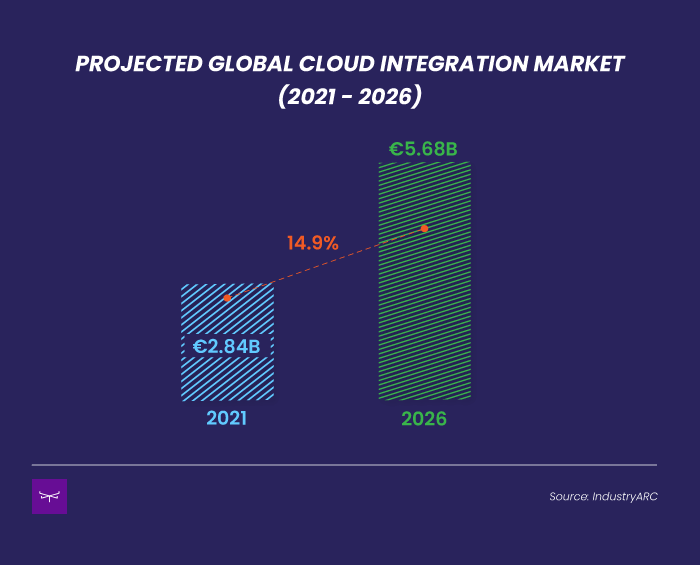Mercadona has ordered automated intralogistics systems from Cimcorp for four of its distribution centers – Zaragoza, San Isidro, Huévarand Sagunto – and now the first one, in Zaragoza, is up and running.
Installation and commissioning at the Zaragoza distribution centre was finalised just before Easter, which is always the busiest time of the year for Mercadona. One might assume that Spain’s leading grocery retailer would want the installation team to stay on site – in case of any issues – but trust in Cimcorp’s automation is so high that the Mercadona team has decided to fly solo.
Javier Blasco (pictured), Warehouse Purchasing Coordinator for Mercadona, says: “Our goal is to serve the orders of our stores with the highest-possible quality, and we must know how to do it on our own. We had the confidence do to it this way, because the robustness and reliability of this solution had been verified during assembly and commissioning, and our staff are trained to use it. The simplicity of the automation makes it easy to use and there is no need for a big team.”
Mercadona has ordered the same automation for four of its distribution centres. All four of the new logistics facilities will have different climate zones for packed meat products and for fruit and vegetables.
Using the same independent automation modules and scaling the amount of modules to meet the capacity needs of each individual logistics centre, Mercadona gets many benefits.
“Having modular solutions has advantages, such as all personnel knowing the installation regardless of which city it is in. Additionally, the solutions can be scaled up and the processes standardized more easily,” says Blasco. “The best part has been the sturdiness of the application; we haven’t had operational surprises with real orders and we’ve been able to provide a guaranteed service to our stores.”
Lifetime learning leads to partnerships
Last year provided many obstacles, but professional project management ensured the installation was ready on schedule and, most of all, respected the safety regulations. Jarkko Hakkarainen, General Manager of Cimcorp Iberia, says: “It is important that we are able to keep things in order even if things are not proceeding as planned. In these situations, quick response time and good adaptability are essential skills.”
Even though Covid-19 created some challenges and limitations, the installation was ready on schedule, and it was completed while respecting everyone’s health and safety. Blasco says: “The installation has really been made in the expected manner.”
Cimcorp supplied automation to Mercadona back in 2013, when it implemented a fully automated order picking system for fresh produce at the retailer’s DC in Guadix, near Granada. However the now finalised installation in the Zaragoza distribution centre is the first time that Cimcorp has acted as system integrator for the leading Spanish company.
Hakkarainen says: “Designing optimal handling and control systems is only the first step in implementing intralogistics automation. Project management is a hugely important element in the successful delivery of robotic solutions, but also in developing long-term partnerships.”
Automation secures employee and food safety
In Cimcorp’s fresh food solution there is no need for shelving, which reduces costs and enhances employee and product safety. “In our solution, overhead gantry robots handle food crates that are stacked on the floor. So when you need to clean the area, there’s no need to climb up ladders and check every shelf,” explains Hakkarainen. “Everything is on the floor, where it is safer and more ergonomic to clean.”
Food safety and a temperature controlled supply chain are always essential when dealing with groceries. “Mercadona always prioritises hygiene and quality in all products, whether in conventional or automated warehouses,” says Blasco.
Mercadona’s approach to the benefits of the automation is very human. The accuracy and quality of picked pallets, as well as shortened lead times are always reflected through the effect on people. “The biggest advantage is the reduction in errors to guarantee a better service for our stores and customers. The main benefit of automation is to secure employee safety and avoid excessive workload,” says Blasco.
Better service level through last-moment fulfillment
Although the total cost of ownership, purchase price and cost of operation affected the decision making while sealing the deal, Blasco wants to highlight that, for Mercadona, it is always about people – both employees and customers. “Even if the economic values are important, they’re not the first priority – we prioritize good customer service, taking care of our personnel and doing things in a sustainable way.”
To satisfy the diversity of delivery orders coming into logistics centres, grocery retailers need a fulfilment strategy capable of prioritising orders as they come in. Any last-moment requests entering the supply chain will demand a shorter shipping and fulfilment cycle.
“These orders have to be dealt with, without negatively affecting the rest of the fulfilment operations,” says Hakkarainen.
So how did Easter go? Smoothly and according to plan. “There were no major problems – as expected. Nothing remarkable happened,” Blasco says.







